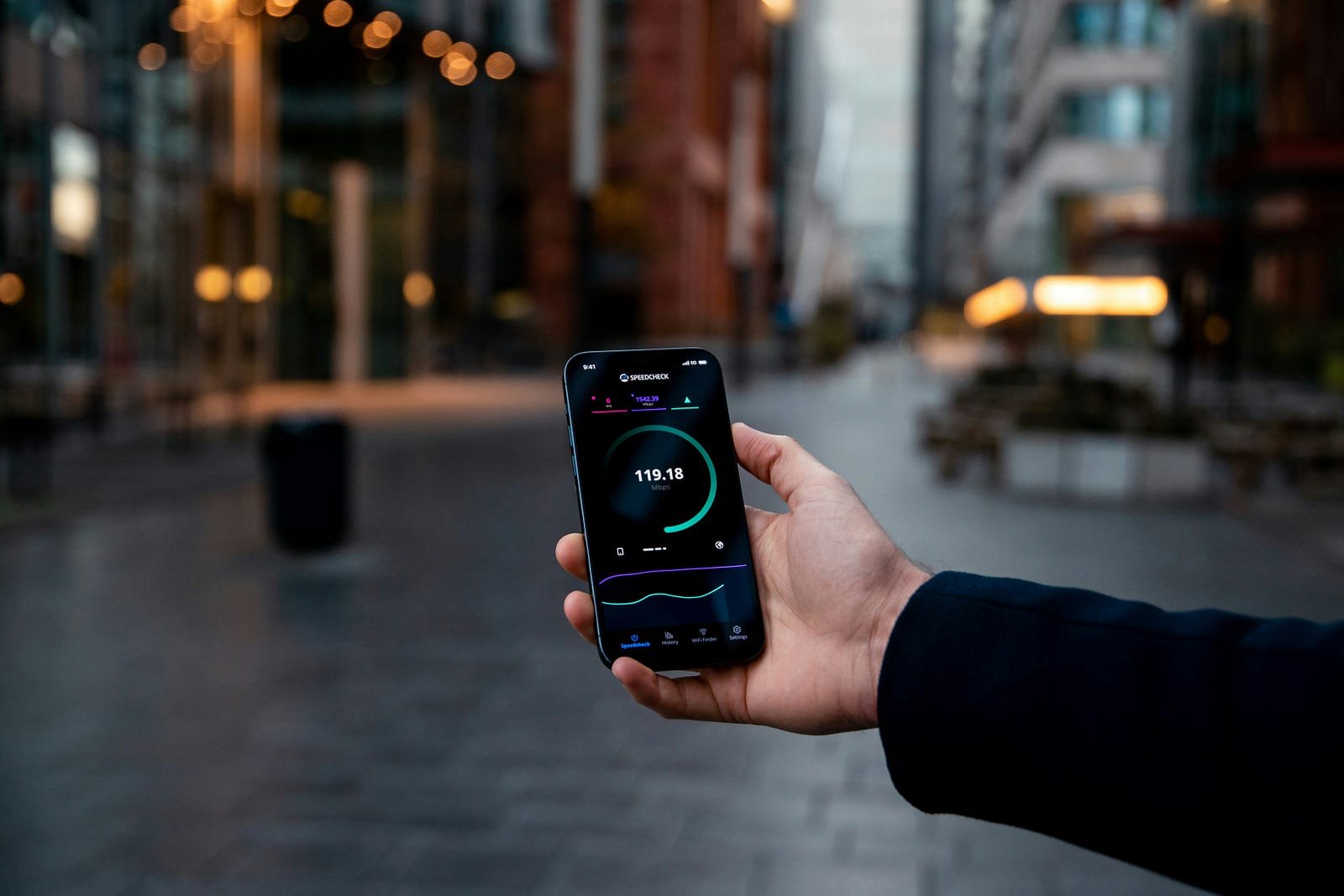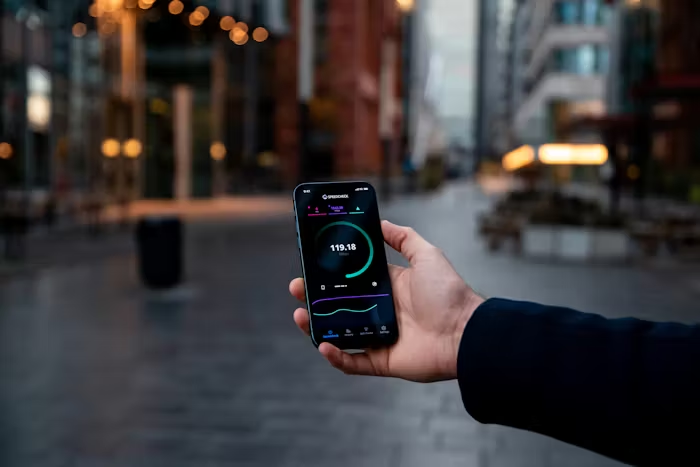The world of communication is about to be revolutionized by the advent of 5G technology. Promising faster speeds, lower latency, and a more robust network, 5G is not just an upgrade from its predecessor — it’s a transformative leap. As industries, governments, and individuals prepare to embrace this game-changing technology, it’s crucial to understand how 5G will reshape communication and the implications it holds for our daily lives, businesses, and the global economy.
What Is 5G? A Quick Overview
5G, or the fifth generation of wireless technology, is designed to dramatically improve the capabilities of mobile networks. It builds upon the foundation laid by 4G LTE, introducing key features such as:
- Lightning-fast speeds: Download and upload speeds of up to 10 Gbps.
- Ultra-low latency: Response times as low as 1 millisecond, compared to 50 milliseconds for 4G.
- Massive device connectivity: Support for up to one million devices per square kilometer.
These advancements pave the way for seamless, instantaneous communication, enabling technologies that were previously only conceptual.

Faster Internet Speeds: A Productivity Game-Changer
One of the most noticeable benefits of 5G is its unparalleled speed. Imagine downloading a full HD movie in just a few seconds or streaming 4K videos without buffering. For businesses, this means faster data transfers, enhanced cloud computing capabilities, and the ability to handle complex workflows in real-time.
Impact on Communication:
- Video conferencing will become more reliable and crystal clear, eliminating lag and dropped calls.
- Remote collaboration tools will function effortlessly, even in bandwidth-intensive environments.
- Social media and live streaming will reach new heights, with content creators and consumers enjoying instantaneous uploads and interactions.
Lower Latency: The Foundation of Real-Time Interaction
Latency, or the time it takes for data to travel from one point to another, is a critical factor in communication. With 5G, latency is reduced to nearly imperceptible levels, enabling real-time interaction for applications that require instant feedback.
Real-World Applications:
- Telemedicine: Surgeons can perform remote surgeries using robotic tools, guided by high-definition video feeds with no delay.
- Gaming: Online gamers will enjoy lag-free experiences, even in competitive multiplayer settings.
- Virtual Reality (VR) and Augmented Reality (AR): Immersive experiences will become more accessible, enhancing communication, education, and entertainment.
Enhanced Connectivity: Powering the Internet of Things (IoT)
5G’s ability to connect a vast number of devices simultaneously will be a game-changer for the Internet of Things (IoT). From smart homes to smart cities, the technology will enable devices to communicate seamlessly, creating a more interconnected world.
Examples of Enhanced Connectivity:
- Smart homes: Appliances, security systems, and entertainment devices will communicate with each other, offering greater convenience and automation.
- Smart cities: Real-time data from traffic lights, public transportation, and environmental sensors will improve urban planning and reduce inefficiencies.
- Wearables and health devices: Continuous monitoring and instant communication with healthcare providers will improve patient outcomes.
Transforming Industries: Beyond Personal Communication
The impact of 5G extends far beyond personal communication, promising to revolutionize entire industries. Here’s how:
1. Healthcare
5G will enable telemedicine, remote diagnostics, and real-time health monitoring, reducing the need for in-person visits and making healthcare more accessible.
2. Education
Remote learning will be enhanced with high-quality video streaming, VR-based training, and collaborative tools that function seamlessly.
3. Transportation
Autonomous vehicles will rely on 5G for real-time data exchange with other vehicles, infrastructure, and traffic management systems, improving safety and efficiency.
4. Manufacturing
Smart factories powered by 5G will use connected machinery, sensors, and robotics to optimize production and reduce downtime.
Addressing Concerns: Security and Infrastructure
Despite its immense potential, 5G also raises concerns that need to be addressed to ensure its safe and widespread adoption.
1. Cybersecurity
The expanded network of devices creates more potential entry points for cyberattacks. Robust encryption and security protocols will be essential to protect sensitive data.
2. Infrastructure
Building the infrastructure for 5G requires significant investment in new cell towers, base stations, and fiber-optic networks. Governments and private entities must collaborate to make this possible.
3. Privacy
With an increase in connected devices, ensuring user privacy will be a critical challenge. Clear regulations and transparent practices will be necessary to address these concerns.
The Global Race for 5G Dominance
Countries and tech giants are racing to lead the 5G revolution, recognizing its potential to drive economic growth and innovation. China, the United States, and South Korea are among the frontrunners in 5G deployment, with other nations quickly catching up.
This competition has spurred investments in research, infrastructure, and talent, accelerating the rollout of 5G networks worldwide.
What Does the Future Hold?
The possibilities enabled by 5G are only limited by our imagination. As the technology matures, we can expect to see:
- Holographic communication: Real-time holographic calls for a truly immersive experience.
- Advanced robotics: Robots that can respond instantaneously, revolutionizing industries like logistics and healthcare.
- Edge computing: Decentralized data processing for faster and more efficient systems.
These advancements will redefine the way we communicate, work, and live, bringing us closer to a future where connectivity is ubiquitous and seamless.
How to Prepare for the 5G Revolution
To make the most of 5G, individuals and businesses should start preparing now:
- Upgrade devices: Ensure your smartphones, tablets, and other devices are 5G-compatible.
- Invest in training: Familiarize yourself with the new opportunities 5G will bring to your industry.
- Stay informed: Keep up with the latest developments to understand how 5G will impact your daily life and career.
The advent of 5G technology marks a transformative shift in the world of communication. Its speed, low latency, and massive connectivity capabilities promise to revolutionize personal interactions, industries, and global economies. While challenges like cybersecurity and infrastructure need to be addressed, the potential benefits far outweigh the risks.
As we stand on the brink of a new era, it’s clear that 5G is not just about faster internet — it’s about enabling a future where communication is seamless, instantaneous, and transformative. Embracing this technology will unlock opportunities we’ve only dreamed of, shaping a connected world that benefits everyone.














